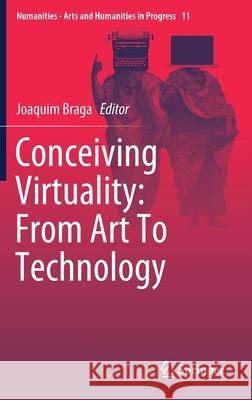Conceiving Virtuality: From Art to Technology » książka
topmenu
Conceiving Virtuality: From Art to Technology
ISBN-13: 9783030247508 / Angielski / Twarda / 2019 / 210 str.
Conceiving Virtuality: From Art to Technology
ISBN-13: 9783030247508 / Angielski / Twarda / 2019 / 210 str.
cena 402,53
(netto: 383,36 VAT: 5%)
Najniższa cena z 30 dni: 385,52
(netto: 383,36 VAT: 5%)
Najniższa cena z 30 dni: 385,52
Termin realizacji zamówienia:
ok. 16-18 dni roboczych.
ok. 16-18 dni roboczych.
Darmowa dostawa!
Kategorie BISAC:
Wydawca:
Springer
Seria wydawnicza:
Język:
Angielski
ISBN-13:
9783030247508
Rok wydania:
2019
Wydanie:
2019
Numer serii:
000801780
Ilość stron:
210
Waga:
0.49 kg
Wymiary:
23.39 x 15.6 x 1.42
Oprawa:
Twarda
Wolumenów:
01
Dodatkowe informacje:
Wydanie ilustrowane











